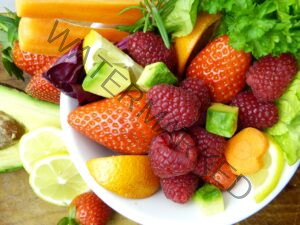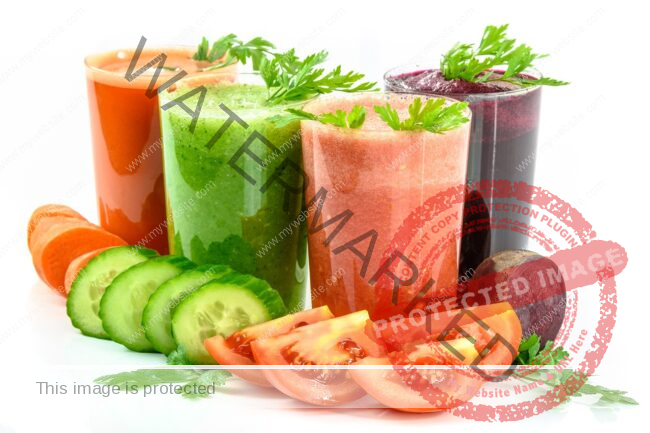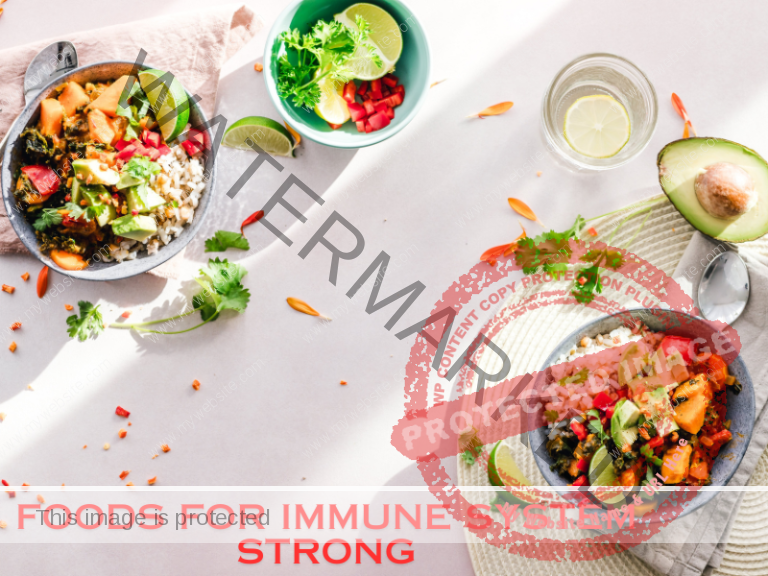A Nutritional Battle: Healthful Food vs. Junk Food Best Guidlines
Title: A Nutritional Battle: Healthful Food vs. Junk Food
Greetings:
The struggle between junk food and healthy food has gained more prominence in our fast-paced society, where convenience frequently takes precedence over health. Our entire well-being is greatly impacted by the dietary decisions we make. This piece thoroughly compares junk food with healthful food, examining the nutritional content, health benefits, and long-term impacts of dietary decisions.
Nutritional Worth: Healthful Food vs. Junk Food

Junk Cuisine:
Foods that are heavily processed, heavy in calories, and generally lacking in important nutrients are referred to as junk food. These foods frequently contain high levels of sodium, sugar, and bad fats. Fries, sodas, sugary snacks, and fast food burgers are popular examples. These foods lack the essential vitamins, minerals, and fiber required for a balanced diet, even while their high sugar content may give you a short energy boost.
Healthful Cuisine:
Healthful Food vs. Junk Food: Conversely, nutrient-dense, naturally occurring foods with little to no processing are included in the category of nutritious food. This group includes whole grains, dairy products, fruits, vegetables, and lean meats. These meals are abundant in vital nutrients, such as antioxidants, fiber, vitamins, and minerals. Eating a diet rich in nutritious foods gives the body the building blocks it needs to perform at its best and to be healthy overall.
Influence on Well-Being:
Junk Cuisine:
Healthful Food vs. Junk Food: Frequent junk food consumption is linked to a wide range of health problems. Many junk food items include trans and saturated fats, which when consumed in excess can raise cholesterol and increase the risk of cardiovascular illnesses. These meals contain a lot of sugar, which increases the risk of type 2 diabetes, insulin resistance, and weight gain. Furthermore, high blood pressure and its associated consequences can be caused by junk food’s excessive sodium content.
Furthermore, Healthful Food vs. Junk Food: even in people who consume an excessive amount of calories, malnutrition can arise from junk food’s deficiency of vital nutrients. These foods lack fiber, which further aggravates digestive issues and raises the risk of constipation.
Healthful Cuisine:
Healthful Food vs. Junk Food: Numerous health advantages come from eating a diet high in nutritious foods. For example, fruits and vegetables are a great source of vitamins, minerals, and antioxidants that boost immunity and lower the risk of chronic illnesses, such as cancer. Because of their high fiber content, whole grains help to improve digestive health and maintain steady energy levels.
Eating lean proteins—found in fish, chicken, and plant-based foods—supports the development and repair of muscles while allowing one to maintain a healthy weight. Dairy products contain calcium, which is vital for healthy bones. Furthermore, the danger of cognitive decline is decreased and brain function is supported by the omega-3 fatty acids found in some nutritious meals, such as nuts and fatty fish.
Prolonged Consequences:

Junk Cuisine:
Healthful Food vs. Junk Food: A diet high in junk food can have detrimental long-term effects. There could be an effect on mental health in addition to more pressing medical issues including diabetes, obesity, and cardiovascular illnesses. According to studies, eating a lot of processed food may raise your chance of developing depression and other mental health issues.
In addition, the highly addictive properties of sugar and salt found in junk food may be a factor in the development of lifelong bad eating patterns. Thus, there is a decrease in total life expectancy and a higher chance of getting chronic illnesses.
Healthful Cuisine:
Healthful Food vs. Junk Food: A longer, better life can be attained by adopting a diet that is focused on eating healthily. The nutrients found in a balanced diet promote mental and physical health, lower the risk of chronic illnesses, and improve quality of life in general.
Furthermore, the groundwork for lifelong good health is laid by developing appropriate eating habits at a young age. Exposure to a diverse range of nutrient-dense foods during childhood can reduce the likelihood of diet-related health problems as adults, as these habits are more likely to be maintained.
The following sources can be used in the “Junk Food vs. Healthy Food” article:

References: Healthful Food vs. Junk Food
Mozaffarian, D., Willett, W. C., Hao, T., Rimm, E. B., & Hu, F. B. (2011). long-term weight increase in men and women, as well as dietary and lifestyle modifications. 364(25), 2392–2404 in the New England Journal of Medicine.
Hu, F. B., Malik, V. S., and Schulze, M. B. (2006). A comprehensive assessment of the relationship between drinking sugar-sweetened beverages and weight gain. A Journal of Clinical Nutrition in America, 84(2), 274-288.
F. B. Hu (2003). Beyond olive oil: the Mediterranean diet and mortality. 348(26), 2595–2596 in the New England Journal of Medicine.
Micha, R., Cudhea, F., Imamura, F., Rehm, C. D., & Mozaffarian, D. (2017). Peñalvo, J. L. Dietary factors and mortality from heart disease, stroke, and type 2 diabetes are related. 317(9) JAMA, 912–924.
Ludwig, D. S., Gortmaker, S. L., and Peterson, K. E. (2001). Analysis of the prospective, observational relationship between childhood obesity and the consumption of drinks sweetened with sugar. 357(9255), 505–508 The Lancet.
Willett, W. C., Hu, F. B., Manson, J. E., Malik, V., Rexrode, K. M., & Fung, T. T. (2009). Women’s risk of coronary heart disease and their usage of sweetened beverages. Ten37–1042, American Journal of Clinical Nutrition, 89(4).
In 2010, Mozaffarian and Ludwig published a book. The 21st-century diet: A time for nourishment? 304(6) JAMA, 681-682.
WHO (2015). a nutritious diet. taken from the webpage https://www.who.int/news-room/questions-and-answers/item/healthy-diet.
School of Public Health, Harvard T.H. Chan. (2021). A nutritious plate is the source of nutrition. taken from the website https://www.hsph.harvard.edu/nutritionsource/healthy-eating-plate…
United States Department of Agriculture, 2020. The American Nutrition Guidelines. from https://www.dietaryguidelines.gov/retrieved
Always make sure that your references are formatted in accordance with the citation style (APA, MLA, Chicago, etc.) that your assignment or publication standards specify.
FAQs:
Not So Healthy Food vs. Junk Food
What distinguishes healthy eating from junk food?
Junk food: highly processed, lacking in nutrients, and frequently rich in sweets, fats, and sodium.
Natural, minimally processed, high-nutrient foods include whole grains, dairy, fruits, vegetables, lean meats, and whole grains.
What makes junk food seen as unhealthy?
Junk food is low in vital nutrients and frequently rich in harmful ingredients like sugars, trans fats, saturated fats, and sodium, which can lead to a number of health problems like diabetes, obesity, and heart disease.
How does eating a balanced diet improve general health?
Vital nutrients, vitamins, minerals, and antioxidants are found in healthy foods and are important for the body to function at its best. They strengthen the immune system, lower the chance of developing chronic illnesses, and enhance general wellbeing.
What consequences does eating junk food have right away?
Because of the high sugar content, immediate impacts could include a sudden energy boost. On the other hand, fatigue and lethargy may quickly result from a deficiency of vital nutrients.
Is junk food allowed in a balanced diet?
Healthful Food vs. Junk Food: Junk food is fine when consumed occasionally and in moderation. But depending on it all the time can result in health problems and nutrient shortages. Healthy, nutrient-dense foods should be the main focus of a balanced diet.
How can eating junk food make you gain weight?
When low nutritional value and high calorie content are coupled, it might cause overeating without meeting the body’s nutritional demands, which can result in weight gain.
How may eating a well-balanced diet help avoid disease?
Healthful Food vs. Junk Food: Nutritious diets high in fiber, antioxidants, and other vital elements are critical in preventing chronic illnesses including diabetes, heart disease, and some types of cancer.
Even in nutritious foods, are all fats harmful?
Nuts, avocados, and olive oil are good sources of healthful fats that the body needs. They promote hormone production, general health, and brain function. Understanding the difference between good and bad fats is crucial.
How can one go from eating junk food to a healthy diet?
Making gradual dietary adjustments, such as adding more fruits, vegetables, whole grains, and lean proteins, can facilitate the shift to a healthy diet. The secret is to cut back on processed and sugary foods gradually.
Are there less expensive options to junk food?
Absolutely, there are lots of reasonably priced and nutrient-dense foods available, such as whole grains, legumes, seasonal fruits, and veggies. Healthy eating can also be more affordable if you plan your meals and buy in bulk.
What are the possible long-term health effects of a diet high in junk food?
Long-term effects could include a higher chance of developing chronic illnesses like diabetes, heart disease, and some types of cancer. Processed food intake has also been linked to mental health problems, such as depression.
Can a healthy diet be maintained while indulging in a treat?
In a balanced diet, yes, treats are appropriate on occasion. Moderation and making sure that most dietary selections are high in nutrients and promote general health are crucial.
Healthful Food vs. Junk Food,As always, keep in mind that every person has different nutritional requirements. For tailored guidance, speak with a medical practitioner or a trained dietitian.
In conclusion:
Our health is greatly impacted by the decisions we make in the constant struggle between junk food and healthy eating. The long-term effects of such dietary decisions cannot be disregarded, despite the convenience of fast food and the attraction of sugary snacks.
Healthful Food vs. Junk Food, Choosing a diet full of healthful, high-nutrient foods gives the body the building blocks it needs to stay healthy and live a long life.
The secret is to be well-informed, to put nutrition above convenience, and to realize that our food choices have an effect that goes far beyond simply satisfying our taste senses. The saying “you are what you eat” ultimately stays true, highlighting how important conscious eating is to leading a better, healthier life.




